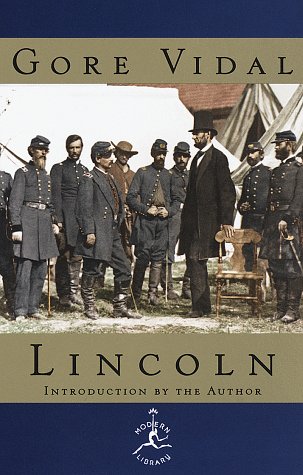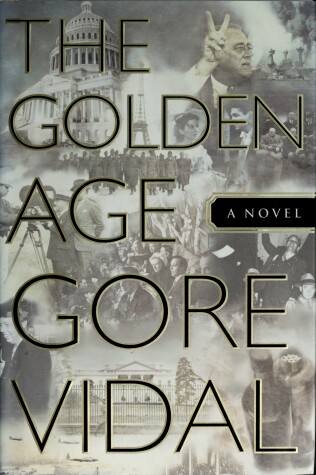American Chronicle
3 total works
In the hazardous fictional terrain of his historical novels, Gore Vidal is never especially kind to American history in general, or to its icons in particular. Yet in this brilliantly realised study of Abraham Lincoln, he paints a surprising and near-heroic picture of the man who led America through four of the most divisive and dangerous years of the nation's history. Observed alternately by his loved ones, his rivals and his future assassins, Lincoln at first appears as an inept and naive backwoods lawyer. People in this novel are not averse to turning up, getting drunk, and regaling the reader with details of Lincoln's whoring activities and his seemingly inexhaustible supply of folksy stories. Yet gradually Lincoln the towering leader of deep vision emerges in a Washington engulfed by fear, greed and the horrors of the Civil War. Lincoln's loving but mentally decomposing wife, his view from the White House on slavery and America's bloodiest war, and his own, fierce personal ambition: all are portrayed with a vibrancy and an urgency that almost belies what they have now become ? history itself.
With the centennial year of the United States as the target of this historical novel, Gore Vidal again mounts a glorious expedition into that grimy and intricate activity called politics. And this is politics as it ought to be: gossip, corruption, money, dinner parties, more corruption, and all the tacky panoply of power. Into the rarefied atmosphere of a world where money has begun to talk very loudly ? usually through the mouths of people called Astor ? step Charles Schuyler and his daughter Emma. Charlie is the unacknowledged bastard son of Aaron Burr; Emma is rather beautiful; and both think it is prudent to return from penury in Europe and secure a fortuitous marriage for Emma. But America is no longer a young republic; it's a fledgling international superpower with its attendant seedy administration, dubious election campaigns, snobbery, 'popped corn', 'speaking tubes' and 'perpendicular railways' (lifts). It's a world that will welcome into its social and political bosom these two attractive exotics with the right names. And it's a world whose every political peccadillo, social slip-up and irresistible intrigue is recorded in this, the journal of Charlie Schuyler.
The seventh volume of what Vidal has entitled the "Narratives of Empire". In "The Golden Age", which offers a fictionalized version of American politics from 1940 to 2000, his main charge is that one of the most revered of all 20th-century presidents, Franklin D. Roosevelt, provoked, and then failed to warn his commanders about, the Japanese attack on Pearl Harbour. His deception was brought about by a poll which revealed that 60 per cent of Americans were opposed to any foreign war. The author uses a series of episodes to show how the US, through its leaders and not through events, became the most influential country in the world, as he reveals (imaginary) conversations in the White House, in newspaper offices and around Washington DC.


